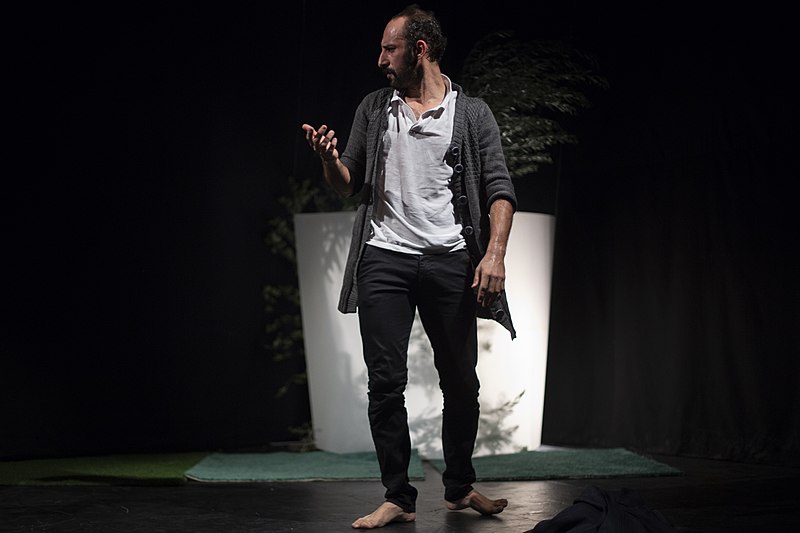
“Mom, what’s a curmudgeon?” asked 11-year-old me. I’m pretty sure I pronounced it “CARmudgeon” and I’m also pretty sure she didn’t correct me. This was long before smartphones and Google.
“It’s kind of like a grumpy old man who just seems grumpy when, actually, he might be nice, underneath his gruff exterior.” My mother didn’t want to know why I needed the definition. She knew I had eclectic interests, even then.
“Sort of like those two old guys up in the balcony on ‘The Muppet Show?’” I persisted. “Statler and Waldorf?” Yep, I knew their names — after all, they were my favorite Muppets.
“Exactly,” said my mother. “Those two are curmudgeons.”
I needed to know the definition because I knew my favorite columnist was known as a curmudgeon. Surely this weird new word meant something special. But, no, it just means a grumpy old man.
Mike Royko was a grumpy old man. And Mike Royko was special. I was 11 or 12 years old and I was reading Mike Royko regularly. I liked him a lot. I thought he was funny. It didn’t hurt that the young Royko looked just a little like Woody Allen.
Royko made me think.
Raised in a politically conservative household, I had always subscribed to my parents’ beliefs without question. I suspect curmudgeonly old Mike Royko was the first to make me consider there might be other legitimate perspectives. It was a small seed that took many years to germinate but it was planted by a curmudgeon who hung out at a place called the Billy Goat Tavern, when he wasn’t in a box seat at The Muppet Show.
If it seems weird that a sixth-grader was a loyal Royko reader, it’s about to get even weirder.
Remember, in 1977, I was 11 years old. Two events — momentous to me and far graver than a Royko column — occurred weeks apart that year. These events would have a profound effect on my life, directing how I saw and responded to the world. Decades later, I mark this moment in my then-young life as a turning point.
The first event took place one Sunday evening on March 27, 1977. On the Spanish-controlled island of Tenerife, two fully loaded Boeing 747s collided on the Los Rodeos Airport runway, killing 585 people.
The tragedy unfolded when Tenerife became an unscheduled stop, a diversion when Las Palmas Airport on neighboring Gran Canaria was unexpectedly closed due to a bomb threat. Both islands are part of the Canary Islands archipelago.
On that fateful Sunday, a Pan Am charter originating from LAX via JFK, was one of many commercial flights diverted. Ahead of it, on an impossibly crowded tarmac never designed for this level of congestion, sat a KLM charter originating from Schipol in Amsterdam. Due to sudden weather, bad communication, poor crew resource management and dumb luck, the two heavily laden 747s collided in dense fog. At take-off speed, the KLM struck the Pan Am as the latter tried desperately to get off the runway.
The Tenerife tragedy remains the worst aviation disaster in history.
The second event took place at the oddly named Beverly Hills Supper Club, located in Southgate, Kentucky, just across the Ohio River from the much larger city of Cincinnati.
The Beverly Hills Supper Club was a sprawling, opulently decorated dinner house and nightclub serving the Cincinnati market but drawing performers and customers from all over the region and country. Because of the way the club had expanded over decades, its building had become a maze of dining rooms, bars and performance spaces with all the assorted serving spaces you’d expect tucked in between.
On May 28, 1977 — the Saturday night of Memorial Day weekend — the club was packed with over 3,000 people when it burned. Unfolding on live local news, the nation watched as the vast club was engulfed in flames, killing 165 customers and staff. Many others were injured.
The Beverly Hills Supper Club disaster ranks seventh on the list of history’s deadliest nightclub fires.
For months after these events, my local librarians must’ve kept worried thoughts to themselves as the kid with the dark interests repeatedly checked out the newspapers and periodicals associated with the two disasters. I know several Time and Newsweek magazines were worn and dog-eared after I borrowed them, over and over.
It’s not that I was a little ghoul, fascinated by these dark events. Those several months in 1977 taught me that terrible things happened elsewhere — things that had nothing to do with me. A seminal moment, this is the point I lost my childlike self-focus.
It also helped me understand Mike Royko from an adult perspective.
I owe much of my adult outlook to that little seed Royko planted long ago.
If you parsed me politically, I am about one-third conservative Republican, one-third liberal Democrat and one-third Libertarian. I take a small measure of pride that none of my positions conflict with any other.
Although I see my perspective as balanced and well-thought-out, if my true beliefs on everything were public knowledge, everyone would hate me.
This is easily explained by pointing out that it’s a better-than-even bet that I disagree with you on at least one deal-breaker issue. And since most people no longer care to consider the hundreds or thousands of things we have in common, instead focusing on those couple points on which we disagree, I am accustomed to being written off over one deal-breaker issue or another.
Never mind that I hail from the Roykian school where we strove to play well with others. We recognized we could disagree and still be friends, a quality distinctly out of favor these days. But today my natural optimism has been tempered by the cynicism I’ve gained from living — only half-joking, I am fond of saying I’ve been around the block so many times it’s round.
You could probably say I am the most cynical optimist you’ll ever meet. Mike Royko would be proud.
There is, however, method to my madness.
When my conservative friends start bashing the social justice movement, I counter with this: the social justice movement got us to stop saying the R-word, which we shouldn’t have been saying anyway. I go on to detail some of the other improvements that have come about via efforts of those concerned with social justice. It’s not that I am a sword-carrying member of the movement — but I recognize true nonpartisan progress when I see it.
Of course, like most other human endeavors, the social justice movement has taken things too far, too fast. Social change — both necessary and inevitable — works best when it happens slowly, whether anyone likes it or not.
I learned this thinking from reading Mike Royko when I was 11 years old.
Nearly 50 years later — and 25 years after Royko’s death — I’ve remained true to myself, to my morals, to my faith.
I never set out to follow Royko’s path and I do not now claim to have done so.
I got my first newspaper gig in 1984 and I have been writing one way or another ever since. If one day I have a body of work worth reading, worth quoting, worth remembering, I would be honored if my name was mentioned with journalistic royalty like Mike Royko. But I’m not holding my breath.
Meanwhile, have I become I curmudgeon? It’s funny how you bypass the things to which you aspire, managing instead to become the things you never sought. I don’t know that a sixth-grader is capable of curmudgeonliness — I suspect a few of them are — but I am quite certain I’ve attained both the age and the cynicism to now qualify.
That’s okay. If anyone ever labeled me a curmudgeon, I’d be honored to keep Mike Royko company at The Billy Goat or up in that Muppet box.
Matthew Meador is a former food and wine writer, senior editor and a rare moderate Republican who now writes political commentary. Previously, Matt was an award-winning graphic artist who often put his skills to use during election seasons. Matt has served in various capacities on political campaigns, for pollsters and for elected officials. Contact him at matthewmeador.com.

















